Is slow fashion the way forward for a clean earth
Is slow fashion the way forward for a clean earth
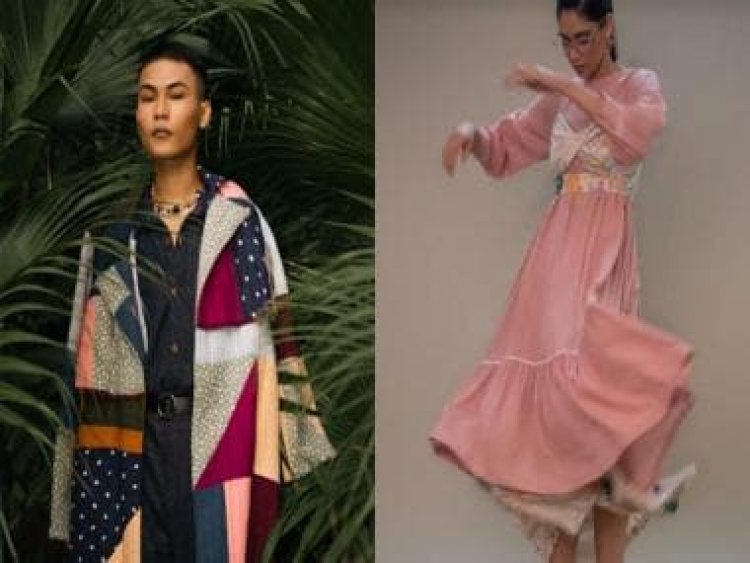
In today’s world, the fashion industry is the second biggest polluter of the world. Not only due to the toxic chemical colors which they use, and they easily throw at our rivers to pollute but also the waste and unused/ unsold fabrics are dumped every year for landfill. This is the time to raise a voice against the chemical pollution, water waste, and labor policies concerning our favorite big fashion brands.
The fashion industry is estimated to contribute upwards of two per cent of global greenhouse gas emissions and is on track to get even worse if there isn’t major change. As conscious consumers it is our duty to know where our clothes are coming from, who is making it, and how it’s impacting on our earth. There are many benefits to embracing slow fashion, reducing your carbon footprint to save our earth, supporting fair trade practices in fashion. By purchasing from slow fashion brands, you can know that your clothing is made ethically and sustainably.
Finding value in waste reduces the pressure on our natural resources to produce more while building alternate economies. Kirti Tula, designer and founder of Doodlage says, “We have grown to approach sustainability more holistically. Material for each product is chosen consciously. We work with deadstock, defected and post cutting waste remanufacturing with what has already been produced, using recycled material or low impact new age material. We work with NGOs, fair wage factories and for-profit social enterprises for production of our products. The last layer of the product that is packaging is also made with starch or recycled paper.”
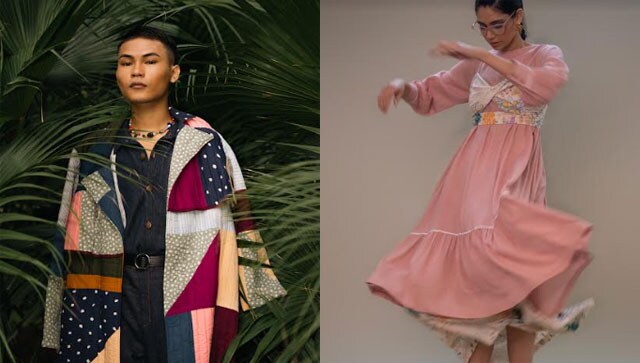
Doodlage was started in 2014 much before sustainable fashion became a buzzword. The idea was to initiate conversations around the impact and importance of sustainable fashion. We worked to create our own sustainable fashion supply chain to create fashion forward products for the price conscious Indian consumer.
For Delhi based Indigene by Jaya Bhatt and Ruchi Tripathi, slow fashion means creating a product with nuances and details, quality that will last and a piece of clothing which can be worn over and over through seasons and trends, yet feel comfortable and special with every wear. Says Jaya Bhatt, “Slow fashion is important, especially in today’s world where a customer is spoilt for choices, there are easy replicas and little or no value for process or how a product was made. Shopping is at a click of the button and returns even faster. Slow fashion makes us realise and analyze the real worth of a product, the time spent behind the making and the people involved in creating it. It deflects us from mindless consumerism and a wasteful attitude towards things.”
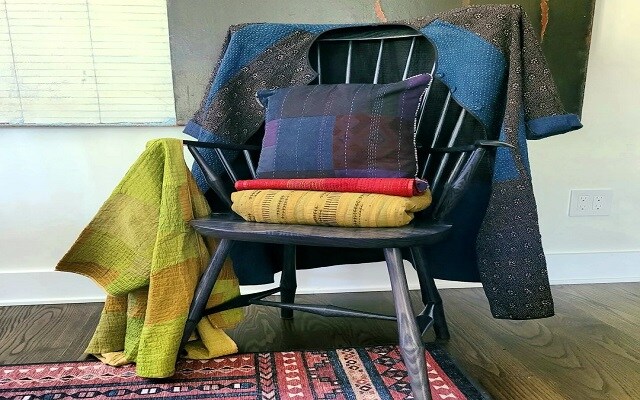
At Indigene they encourage their customers to repeat their outfits as many times and across seasons and occasions, and hence their garments are made in natural fabrics, are easy on the skin and the silhouettes comfortable for an all-day wear.
Says Ruchi Tripathi of Indigene says, “Reusing our scraps and wastage has always been a part of indigene’s existence. Coming from a textile design background, both of us have an extensive knowledge of textiles, their behaviour and treatment. We have been using most of our production scraps, rejected garments, left over fabrics in a planned manner to create the ReLove collection.”
The ReLove collection at Indigene is slow and ever evolving, where we keep experimenting with several repurposing techniques, such as patchwork, reinforcing, superimposing etc to re-create a new product from the wastes. Sorting different textiles/ colours, sewing them together in different forms or patterns, dyeing over dying as required and finally working on silhouettes relevant to the recreated textile; re-purposing is a long and carefully planned activity. ReLove consists of a range of jackets, overlays and home accent textiles. As mentioned it’s an open experiment and the range keeps evolving.

Most of the big fashion houses throw their cut pieces of fabrics and old fabrics for landfill. This is a big problem for environment. To create more demand, the big companies always keep on producing more and more fabrics, which is causing many problems, like carbon footprints and chemical waste and water waste. Dorji Shantiniketan believes that fabric life is much longer than the companies advertise it, they always want you to throw out the old one and buy new.
Designer Saynati Chowdhury of Dorji Shantiniketan says, “We don’t throw any cut pieces after the dress is ready; rather we keep all the tiny small pieces and use them to make up-cycled, patched clothes, also we reuse the fabric for more than one time to make clothes. If you are buying a dress and get bored with it within a year you can always send it back to us and we will create something new reusing the same fabric.”
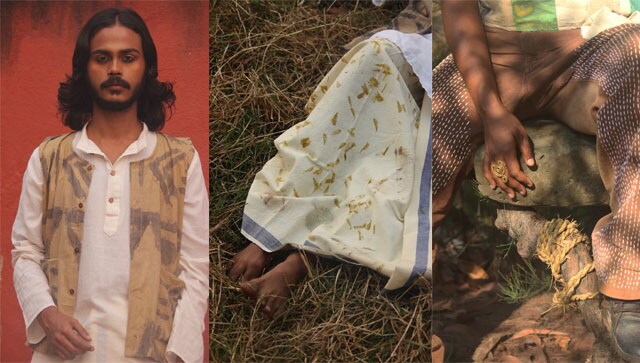
To reduce fashion pollution at Dorji Shantiniketan no toxic chemicals are used, rather all colours are collected from nature, from flowers and plants. Saynati Chowdhury explains, “For fixing the colors we use traditional methods and some non toxic salts to fix it like ancient time, whereas most of the fashions brands make color their clothes from toxic chemicals only. The second technique is less water consumption, in general big companies wash their fabric two to three times in the total process, and first they wash the yarns after dyeing with chemical colours, second wash after weaving, third they wash after stitching and packing. Containing more than 50 liters of water wasted due to this cleaning and washing process of each garment.”
At Dorji Shantiniketan they don’t do that. They only wash the fabric once after the weaving; they don’t wash after dyeing because there are no toxic chemicals. “Also we don’t wash after stitching as well. Rather we insist our customers to wash it without toxic soda and other chemical detergent to prevent future water waste and pollution from their side,” adds Saynati.
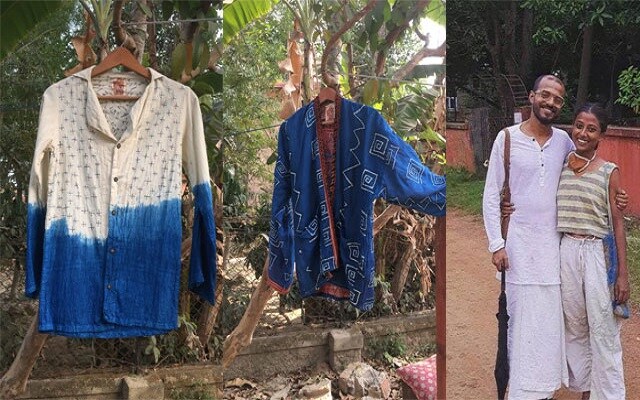
Dorji Shantiniketan was started in 2019 with the aim of sustainable and ethical fashion. They use floral and organic colors which they collect from nature. They believe in a fair atmosphere and fair wages policies, so they only weave fabric in handloom, and their artisans don’t come to our factory, rather they reach out to them and wish them to work while playing with their kids and eat the food they make at home. This gives them a better life and absolutely no long shift of work.
They focus more on handcrafted fashion so all their products are custom made. Saynati further adds, “Hand embroidery, batik and other things are all done by human hand. This takes time and we don’t promise our customers to deliver them their ordered dress like a pizza, but we make them realize that the dress is made by humans not machines so it takes time and that process is definitely slower than big industrial fashion brands.”
Read all the Latest News, Trending News, Cricket News, Bollywood News, India News and Entertainment News here. Follow us on Facebook, Twitter and Instagram.
What's Your Reaction?



























































